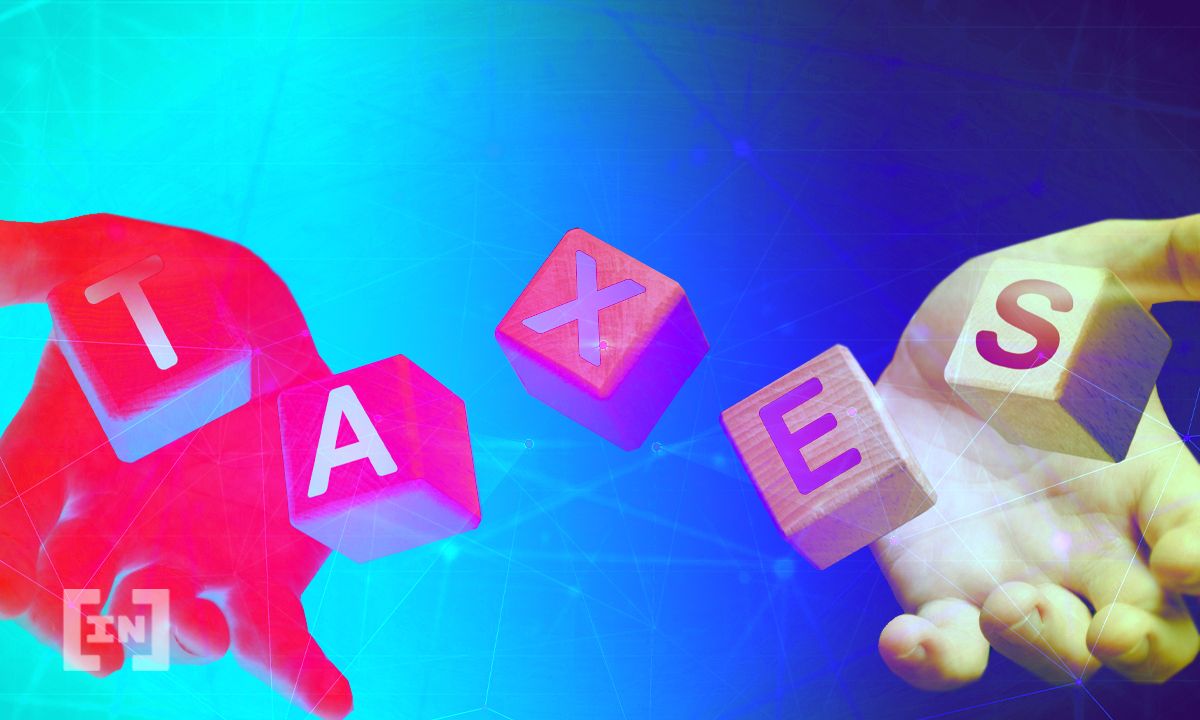Non-fungible tokens (NFTs) continue to boom. However, with record sales and brand new investors in the space, what does this mean come tax season?
As the NFT world continues its sprint into the mainstream, there are more opportunities for investors. However, with such possibilities come serious questions around regulations and taxes. Already in the United States, the industry is on the cusp of new, potentially harmful regulations.
Crypto regulation, in general
Earlier this summer, the Senate passed a bipartisan tax infrastructure bill, which included a small clause related to the crypto industry.
Despite its small size, the impact on the community is not. The crypto clause broadens the definition of the term ‘broker.’ It groups most participants in the space into the same reporting category, be they investors, developers, or exchanges. The simple act of sending a friend crypto or buying a coffee with bitcoin could be subject to tax reporting.
Nonetheless, there are people in high places on the side of the crypto space. U.S Senator Pat Toomy, among others, stood for the community and called the bill “unworkable” as it stands. The CEO of Coinbase also spoke out on the potential negative impact of the bill.
While nothing is yet set in stone, the crypto community remains on edge. Meanwhile, others, such as the Chief Legal for tZero Alan Konevsky, look at the impending regulations as a sign of industry maturity.
“Crypto has sort of found itself all grown up all of a sudden, and all of a sudden, we find ourselves in the spotlight of a national political process, in the middle of a very meaningful piece of unrelated legislation, where for revenue generation measures crypto is relevant because it is grown up and an attractive source of revenue,” he said in a previous interview with BeinCrypto.
This week U.S. House Democrats introduced their own crypto tax provisions. While not as industry rattling as those added by the Senate, they’re still more red tape. Lawmakers hope for finalized crypto tax infrastructure by the end of September 2021.
However, when considering the taxing cryptocurrencies, most think of coins such as bitcoin or ethereum. What is often not discussed is the ERC-721 token or more commonly known, NFTs.
Non-fungible…taxes
The NFT market is on fire. Major celebrities like pop-icon Doja Cat now have their own collections. In her case, the NFTs make up an entire metaverse of their own and range in price from $5 to thousands of dollars. Others auction at premier auction houses and earn millions, such as the Bored Ape Yacht Club series.
With all that revenue comes implications. At the present moment, what is in store for these digital treasures tax-wise? What will collectors, who have a variety of these assets, have to declare?
“The taxation of the NFT creator is different from that of an investor selling an NFT. The creator would likely be subject to ordinary income tax rates and self-employment taxes. An investor would likely fall under the tax rules of collectibles,” says Edward Kim, tax director for Anchin Accountants and Advisors.
This means that those creating NFTs are taxed on the profit they make from the sale of their creations. This is considered income, and therefore the taxes mentioned by Kim apply.
Paying tax on NFTs you’ve collected
According to Kim, there is a difference between a $10 NFT and one that sold for millions. Mainly the difference occurs when the buyer purchased the tokens used in the NFT transaction.
“The purchase of an NFT creates a realization event based on the sale of the Ether token,” said Kim.
“Tax on the sale of cryptocurrency is determined based on capital gains tax rates. If a token were purchased and sold within a year, the tax owed would be at ordinary income tax rates for that particular taxpayer, which could range from 10 – 37%, depending on the taxpayer’s income tax bracket,” he explains.
However if the purchaser bought the token over a year before the NFT acquisition, the rules are different. Then, “the tax obligations of selling the token will fall under long-term capital gains rates which could be taxed at 0%, 15%, or 20%, depending on their overall tax situation. Let’s not forget to tack on the possible additional 3.8% net investment income tax,” he says.
Paying attention to taxes on NFTs
Given the murky situation surrounding overall crypto taxes, Kim thinks the average taxpayer and NFT dabbler is unaware of the situation.
As of this moment, the IRS and U.S. regulators, in general, have not come up with specific guidelines for NFTs. Though lawmakers certainly have their eyes on the space. In the meantime, Kim advises those involved in the space to be alert for future changes.
“We interpret current tax law and apply that towards the taxation of NFTs. People need to be wary that the taxation of NFTs could be different based on possible future guidance from the IRS,” he says.
Disclaimer
Following the Trust Project guidelines, this feature article presents opinions and perspectives from industry experts or individuals. BeInCrypto is dedicated to transparent reporting, but the views expressed in this article do not necessarily reflect those of BeInCrypto or its staff. Readers should verify information independently and consult with a professional before making decisions based on this content. Please note that our Terms and Conditions, Privacy Policy, and Disclaimers have been updated.


